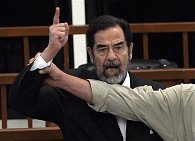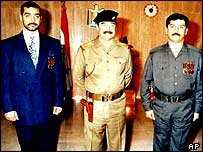Death by poison: Story of the Russian defector
The world was rattled by the news of the death former Russian spy Alexander Litvinenko, who dies of a suspected poisoning by a radioactive substance. The former spy was a critic of the Kremlin and its incumbent Russian President Vladimir Putin. The news of his poisoning and subsequent death has unnerved the UK government to such an extent that the government’s disaster management group codenamed COBRA held emergency meetings in London. The worrying aspect for the government and also partly the reason for the COBRA meet is that the suspected agent used as the poison was Polonium 210. A highly radioactive substance that can only be obtained by high end nuclear reactors or in secret nuclear locations under the respective government’s watch. Experts say that it is certainly not a “over the counter” material unlike its other radioactive cousins. The suspected use of Polonium 210 therefore points a mysterious finger to some governmental agency in Russia, most likely the FSB, formerly the KGB or even the Kremlin. What is even more worrying is the fact that if weren’t the usual suspects supplying the Polonium and in fact the source is someone from outside the government it throws a larger question on the availability of these materials in the wrong hands or in the nuclear black market.
Litvinenko himself was a controversial figure. Earlier working as a spy for the FSB he defected to the UK in 2000. From then on he has been a vitriolic critic of the Kremlin’s iron fisted rule over Russia and also its conduct of the war in Chechnya. He has also accused Putin and the FSB of orchestrating bombings in apartments in Moscow in 1999 that killed over 300 people and which was the pretext used by the Kremlin to engage in a war in Chechnian separatists. He was also investigating the death of Kremlin critic, Anna Politkovskaya, the journalist who was recently gunned down by an armed assialant in the lift of her apartment. Litvinenko alleged that the killing of Politkovskaya was the handiwork of the FSB on instructions from the Kremlin. A charge the Kremlin vehemently denies. However, some in Russia did view Litvinenko in much dimmer light than his portrayal in the Western media. He was arrested in 2000 for his conduct in anti-terror operations during his stint in the FSB, on his release he took assylum in the UK and ultimately spoke out against the rule of the Kremlin. Many Russians regard him as an traitor who left his country to speak about the war in Chechnya and against the president. They also charge him as being an antinational element who was giving legitimacy to the terrorists in Chechnya. Some bizarre allegations also followed where a British MEP alleged that Litvinenko had actually unearthed that current Italian Prime Minitser Romano Prodi was a mole for the KGB. That said it is obvious that along the way Litvinenko did make some powerful enemies and maybe paid the price for being the spy who knew too much.
This incident also throws light on the way the Kremlin handles criticism against security agencies and the president. In the Kremlin’s world view any criticism of Russian conduct in Chechnya and its handling of terror events like Beslan is anti national and unacceptable. The Russian media is known to be mostly subservient to the president and any criticism of Putin is avoided or told in a round about fashion. In such a scenario the Russian population is told only one side of most stories – that of the Kremlin. Even during the Beslan crisis the death of hundreds of children was protrayed by the Kremlin as an unfortunate outome of the necessary military action at the time.
Putin is also not known to take too kindly to competition, most recently the erst while richest man in Russia Mikhail Khodorkovsky, was jailed for eight years in a Siberian prison and his company Yukos was dissovled in a matter of months. Many allege that the crime of Khodorkovsky was simple – he was ambitious and looking to challenge Putin. Similarly, media tycoon Boris Berezovsky has to flee the country after the Kremlin threatened to arrest him for his anti-Putin style of reporting. Such incidents do not portray the current state of democrarcy in Russia in good light. There is no doubt that Putin and his style of functioning is more authrorotative than dictatorial, but having said that being authorotative need not necessarlity come about by trampling on democracy and its basic tenenats of free speech. The Western media too has had a field day with their portrayal of Livinanko and the manner of his death which is so reminiscent of the romantacized view of the cold war and spy novels. The true extent of the Kremlin’s involvement is by no means certain nor is it outrightly deniable, but the death and the sorriunding circumstances do point to a deeper conspiracy, the ultimate who do it – and no there is no butler in this thriller.
Litvinenko himself was a controversial figure. Earlier working as a spy for the FSB he defected to the UK in 2000. From then on he has been a vitriolic critic of the Kremlin’s iron fisted rule over Russia and also its conduct of the war in Chechnya. He has also accused Putin and the FSB of orchestrating bombings in apartments in Moscow in 1999 that killed over 300 people and which was the pretext used by the Kremlin to engage in a war in Chechnian separatists. He was also investigating the death of Kremlin critic, Anna Politkovskaya, the journalist who was recently gunned down by an armed assialant in the lift of her apartment. Litvinenko alleged that the killing of Politkovskaya was the handiwork of the FSB on instructions from the Kremlin. A charge the Kremlin vehemently denies. However, some in Russia did view Litvinenko in much dimmer light than his portrayal in the Western media. He was arrested in 2000 for his conduct in anti-terror operations during his stint in the FSB, on his release he took assylum in the UK and ultimately spoke out against the rule of the Kremlin. Many Russians regard him as an traitor who left his country to speak about the war in Chechnya and against the president. They also charge him as being an antinational element who was giving legitimacy to the terrorists in Chechnya. Some bizarre allegations also followed where a British MEP alleged that Litvinenko had actually unearthed that current Italian Prime Minitser Romano Prodi was a mole for the KGB. That said it is obvious that along the way Litvinenko did make some powerful enemies and maybe paid the price for being the spy who knew too much.
This incident also throws light on the way the Kremlin handles criticism against security agencies and the president. In the Kremlin’s world view any criticism of Russian conduct in Chechnya and its handling of terror events like Beslan is anti national and unacceptable. The Russian media is known to be mostly subservient to the president and any criticism of Putin is avoided or told in a round about fashion. In such a scenario the Russian population is told only one side of most stories – that of the Kremlin. Even during the Beslan crisis the death of hundreds of children was protrayed by the Kremlin as an unfortunate outome of the necessary military action at the time.
Putin is also not known to take too kindly to competition, most recently the erst while richest man in Russia Mikhail Khodorkovsky, was jailed for eight years in a Siberian prison and his company Yukos was dissovled in a matter of months. Many allege that the crime of Khodorkovsky was simple – he was ambitious and looking to challenge Putin. Similarly, media tycoon Boris Berezovsky has to flee the country after the Kremlin threatened to arrest him for his anti-Putin style of reporting. Such incidents do not portray the current state of democrarcy in Russia in good light. There is no doubt that Putin and his style of functioning is more authrorotative than dictatorial, but having said that being authorotative need not necessarlity come about by trampling on democracy and its basic tenenats of free speech. The Western media too has had a field day with their portrayal of Livinanko and the manner of his death which is so reminiscent of the romantacized view of the cold war and spy novels. The true extent of the Kremlin’s involvement is by no means certain nor is it outrightly deniable, but the death and the sorriunding circumstances do point to a deeper conspiracy, the ultimate who do it – and no there is no butler in this thriller.


